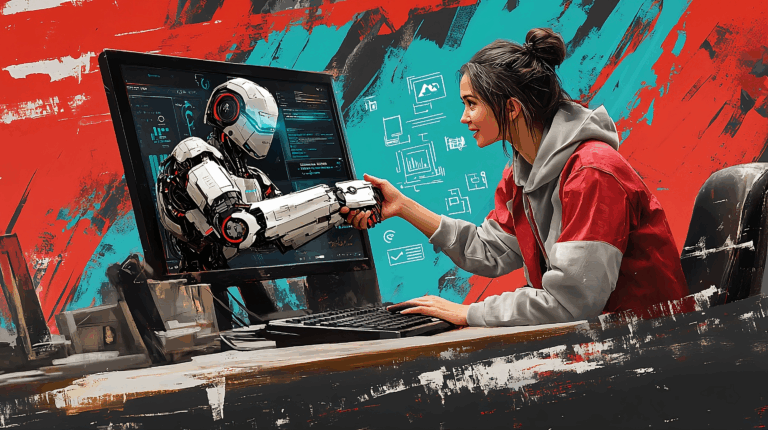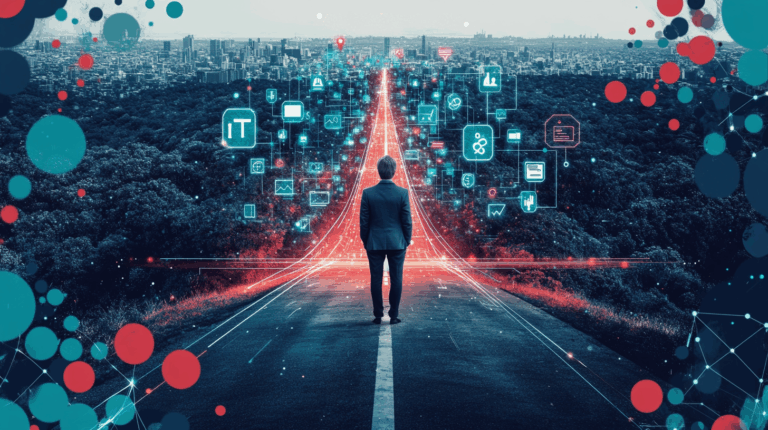In a bold internal memo that quickly made its way online, Shopify CEO Tobi Lütke laid out a new rule for hiring: managers must first prove that artificial intelligence (AI) can’t do the job before adding new headcount. The message is clear – AI isn’t just an optional tool, it’s the starting point. From prototyping to productivity, Lütke expects employees to work with AI at every stage.
His stance has sparked discussion across the tech world, raising questions about the future of work, the role of AI in hiring decisions, and how companies can remain competitive.
This blog explores Shopify’s new approach to AI and hiring – and shares Wawiwa’s take on what it means for training the workforce for the future, making people job-ready and equipping them with the AI skills they need to succeed.
AI as the New Hiring Filter
“Before asking for more headcount and resources, teams must demonstrate why they cannot get what they want done using AI”, says Lütke.
This directive underscores a significant shift in workforce dynamics. Rather than viewing AI as a supplementary tool, it’s now a primary consideration in operational decisions. By prioritizing AI capabilities, companies aim to enhance efficiency and allocate human resources to areas where they add value. Yet in an era where AI can perform many professional tasks – and often do them better than humans – it’s increasingly unclear where people truly add value.
For example, customer support teams are increasingly using AI chatbots to handle routine inquiries – like password resets, order tracking, or product information. These bots can resolve issues instantly, 24/7, without human intervention most of the time. As a result, companies reduce wait times for customers while freeing up human agents to focus on complex or emotionally nuanced interactions – such as conflict resolution or retention conversations that require empathy and judgment AI can’t replicate.
In software development, AI code assistants like GitHub Copilot are transforming how developers work. These AI tools can write entire sections or functions of code, troubleshoot bugs, and even generate technical documentation. Instead of writing code from scratch, software developers can focus on solving architectural challenges or innovating new features. This shift allows companies to speed up product cycles while enabling developers to spend more time on meaningful, creative work. It might be that many software developers become redundant and only ones that manage AI coders are still useful. However, it’s possible that many software developers may become redundant, with only those who can manage AI coders remaining valuable.
The broader industry trend supports this approach. A McKinsey survey reveals that 78% of organizations have integrated AI into at least one business function, reflecting a growing reliance on AI to drive productivity and innovation.
AI Proficiency: The New Baseline for Employees
Lütke also emphasizes that AI proficiency is now a fundamental expectation for all Shopify employees. The directive wasn’t vague or optional – it was a clear instruction: if you’re not using AI to improve your work, you’re falling behind. In his words, stagnation is “slow-motion failure.” If you’re not climbing, you’re sliding.
This view reflects a much broader shift in the workforce. 77% of companies are already using or actively exploring AI in their operations, according to a report by National University. This figure isn’t limited to large tech companies – AI is being implemented across industries, from retail and healthcare to finance and education. It’s becoming a core skill. The days when AI knowledge was reserved for data scientists are over.
At Shopify, this shift is being put into practice. Employees are expected to use AI for everything from content creation to customer support. Lütke even noted that if someone tried to learn AI but gave up too quickly, that’s no longer acceptable. There is no luxury of opting out. And to keep teams accountable, AI usage is now part of end-of-year surveys and performance evaluations. In short, employees must learn to work with AI – or risk being left behind. Whoever doesn’t use AI will not get promoted and will not receive a salary increase.
Wawiwa Tech’s Take: Preparing the Workforce for the AI Era
Wawiwa is a global tech education provider, offering AI-proof reskilling programs and upskilling courses tailored to the latest industry trends.
We do not only teach AI, we also breathe AI. We incorporate AI everywhere we can – into all our training offerings, teaching methods, and internal processes – to keep up with industry trends and meet the ever-changing demands of our partners and students around the world. At Wawiwa, just like in Shopify, everybody is expected to use AI to do their job better and faster.
We’ve also integrated AI modules into all of our tech reskilling programs to train students on the transformative power of Generative AI and meet the growing demand for AI skills from employers. We provide hands-on experience with AI tools that professionals use in every tech field. Learners gain practical skills in applying AI for coding, data analysis, problem-solving, and more, ensuring they are job-ready right after graduation.
In addition, we offer dedicated AI upskilling courses designed to equip professionals with advanced, hands-on experience in cutting-edge tools and techniques, empowering them to stay competitive, innovate, and lead in their industries. There are AI courses in marketing, software development, and other specializations. .
Despite these advancements, the human touch remains central to our mission. Our expert instructors at our partners’ training centers and universities guide and mentor students, ensuring that AI complements – not replaces – the personal connection integral to effective learning.



